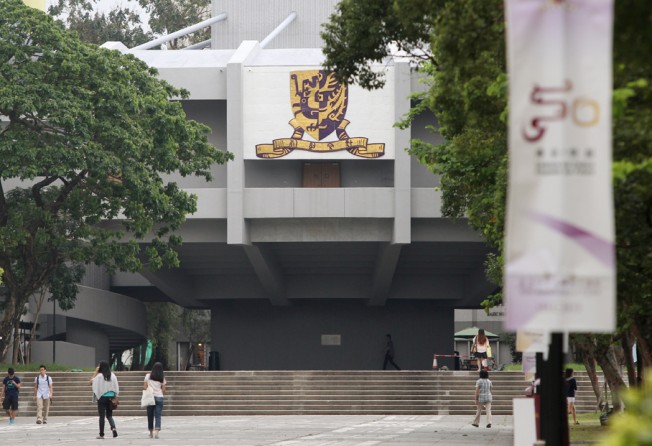
Hong Kong universities fail to source funding from business for innovative research
Local institutions rate poorly when it comes to sourcing funds for innovation from business

Universities in Hong Kong have kept their discoveries and research to themselves and failed to effectively form partnerships outside the ivory towers, an index compiled by Times Higher Education reveals.
Despite being ranked highly within Asia, local universities are not working as closely with companies to source funding from business and apply their research to real products as their competitors in other countries.

The World Academic Summit Innovation Index, which examines the research funding academics receive from companies, ranks the world's top 30 countries and areas for collaboration between academic research and business. Eight Asian countries and areas were in the top 20, with South Korea first and Singapore second.
Hong Kong ranked 20th out of 30, outperformed by mainland China, India and Turkey.
The average academic in Hong Kong attracted an equivalent of HK$155,105 in investment from business, less than half the average business funding a researcher in mainland China receives, and barely one fifth that of peers in South Korea.
"Hong Kong's investment in technology and academic research is insufficient compared to the other economically developed countries in Asia," said Professor Paul Cheung Ying-sheung, director of the University of Hong Kong's Technology Transfer Office. "We were labelled as one of the 'four dragons' a decade ago. Now we are the dying dragon."
Cheung said mainland China, ranked seventh, was close to surpassing Hong Kong, since Beijing had fully recognised the importance of technology innovation. "China used to be the world's factory, but not any more. Now they are willing to invest to be the world's most innovative."
Companies - particularly technology giants such as Samsung - often offer generous funding for promising research programmes. In return they can apply the latest cutting-edge technology to their products.
Dr Wang Mingfu, an associate professor at HKU, said he was disappointed by the lack of appetite for technological innovation from local companies.
Hong Kong companies were not willing to risk investing in the development of novel technologies that may not be accepted by the market, Wang said.
"Companies in Hong Kong are looking for fast payback," he said. "They would rather buy the patents of new technology that has been proved to be profitable overseas."
Professor Ping Sheng, from the University of Science and Technology, agreed that research programmes directly or mainly funded by companies remained rare in the city, and the amount of investment was usually small.
Wang said local universities also failed to promote their research projects to companies and apply their theoretical findings to everyday practice. The city's academics valued only theoretical research and overlooked the importance of applied research, he said.
"In Hong Kong, universities judge you by how many papers you have published in world-class journals. If professors focus on applied research, people tend to think they do not live up to their titles as academics."
The city's economic imbalance also accounted for its lack of business investment in academics, Wang said.
Hong Kong has a small manufacturing sector whose members are keen on technological innovation. But the city's economy largely depends on finance, property and trade.